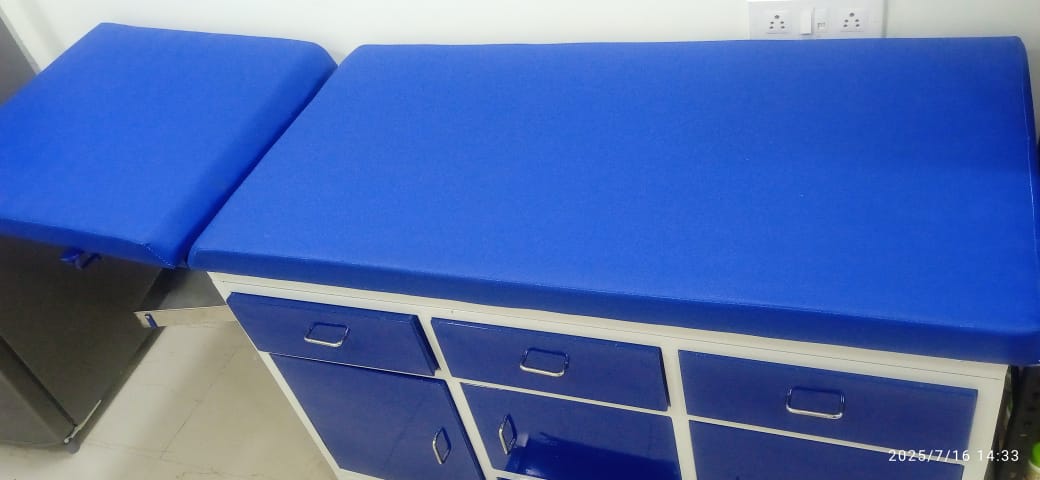One-week / Two-week Intensive Block Physiotherapy sessions available for booking on a quarterly basis every year.
Physiotherapy

We provide intensive physiotherapy blocks for disabled children and infants affected by cerebral palsy and development delays, as well as elderly people after CVA, stroke and other neurological disorders. These blocks currently take place on a quarterly basis four times a year over two weeks, with our physiotherapeutic doctor, Mr. Projesh Tagore Brahma (PT), specialised in different concepts of Neurophysiotherapy and Pediatric Physical Therapy for the early intervention, practicing with his own chamber in Europe – Germany, but visiting our clinics in Kolkata regulary four times a year.
What are intensive physiotherapy blocks ?
Intensive physiotherapy blocks range from 1-2 weeks in duration and involve higher frequency and duration of physiotherapy sessions compared to regular weekly sessions. Research supports the use of such intensive block therapy interventions specially for people recovering from CVA, such as stroke and other brain damage neurological conditions, as well as for children with neurological conditions such as cerebral palsy and other disorders which leave children with developmental delays because of infantile cerebral injury similar to the conditions after stroke of an elderly person. Intensive therapy is designed to target neuroplasticity and to create permanent improvements in function for children and elderly persons affected by neurological disorders. To maximize neuroplasticity and to improve functional outcomes a high-dosage therapy is needed, designed to promote muscle physiology and brain pathway adaptation. Intensive blocks maximise the impact of interventions on the developing brain and its neuroplasticity. Initiating Early Intervention Therapy as early as possible in life is crucial for the childs future healthy development. These interventions often involve a combination of different approaches, tailored to the specific needs.
The Role of Neuroscience in Intensive Therapy
Neuroscience played a big role in shaping intensive therapy techniques. By understanding how the brain processes, therapists can use specific methods to target these areas. Techniques like the german Vojta principle, the Neurodevelopmental Therapy (NDT), or the Castillo Morales concept with its Orofacial Regulation Therapy are commonly used in Europe, helping to regulate the nervous system and promote neurodevelopmental facilitation, but are new to India.
The Vojta Therapy or Reflex Locomotion
Prof. Dr. Václav Vojta, a Czech Neuropediatrician developed the basis of his diagnostics and therapy, the so called Vojta Principle, between 1950 and 1970 at the German Neuropediatric Institut Munich (kbo). The therapeutic use of reflex locomotion enables elementary patterns of movement in patients with impaired central nervous systems and locomotor system to be restored once more – at least in Part, i.e. they become accessible once more. Reflexlocomotions are activated “reflexogenically”. “Reflex”, in the sense of reflex locomotion, does not refer to the kind of the neuronal regulation, but is rather related to therapeutically applied external stimuli and their predefined and always identical, “automatically” present movement responses. In Vojta Therapy, the therapist administers goal-directed pressure to defined zones on the body in a patient who is in a prone, supine or side lying position. In everyone regardless of age such stimuli lead automatically and involuntarily, i.e. without actively willed cooperation on the part of the person concerned, to a coordinated rhythmic activation of the total skeletal musculature and a CNS response at various circuit levels. Through therapeutic use of reflex locomotion, the involuntary muscle functions necessary for spontaneous movements in everyday life are activated in the patient, particularly in the spine, but also in the arms and legs, the hands and feet, as well as in the face. Prof Vojta assumed that repeatedly stimulating these “reflex-like” movements lead to something like “freeing a switch” or “new networking” within functionally blocked networks of nerves between the patient’s brain and spinal cord. Through the use of the reflex locomotion, the elementary components of man’s uprighting and locomotion, i.e.:
1. Equilibrium of the body when moving (“postural regulation”)
2. Uprighting of the body against gravity
3. Goal-directed grasping/stepping.
(Source: IVS 2025)
Prof. Vojta always suggested an intense block style approach as most effective for neurodevelopment.
How often should one attend intensive blocks?
It is clinically recommended that children, as well as elderly clients, should attend intensive blocks approximately every 3 – 4 months to maximise results.
What happens after and between Blocks?
You will also be provided with a home exercise program based on the intervention that worked well throughout the block. The home exercise program will allow you to continue to work towards further facilitation, progress and consolidate the improvements already made.
Is it possible to book such blocks for non-neurological conditions as well?
Intensive Block Physiotherapy is highly effective on orthopedic disorders trough orthopedic manual therapy (OMT) and a whole range of lymphatic disorders, like chronic lymphedema and lymphatic filariasis with Manual Lymph Drainage (MLD) and Complete Physical Decongestive Therapy (KPE) trough lymphatic compression bandaging every day for a block.
Intensive Block Therapy available in 2025
To book a session or to find out more about our available Intensive block physiotherapy dates please call or contact through our website.
Copyright © 2017 Dr P K Bal. All rights reserved. Theme designed with by Infosyst.
